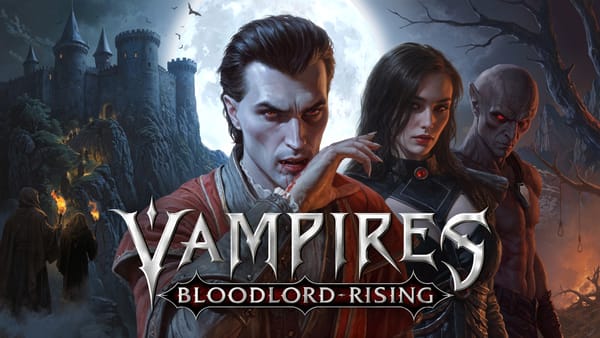AppMagic CEO Max Samorukov: "PC Market Lacks a True, Unified Analytics Solution"




With data company AppMagic's new Steam Analysis launching this month, we talked to CEO Max Samorukov about the difficulties of breaking into data acquisition on different platforms, the history of AppMagic and developer's needs for consistent data for their platforms of choice.
This October, data aggregation company AppMagic has expanded its gaming data from mobile into PC in the form of a new Steam Analysis tool. In the wake of this release, GamesMarkt has talked with AppMagic CEO Max Samorukov about the difficulties of breaking into the data acquisition on different platforms, the history of AppMagic and developer's needs for consistent data for their platforms of choice.
GamesMarkt: Who is AppMagic? What is your company and product history?
Max Samorukov: AppMagic is a comprehensive mobile and PC analytics tool, that lets users get reliable insights faster than any other analytics. AppMagic was launched in 2018 and since then we’ve been constantly growing. Nowadays AppMagic operates globally with representatives across the whole world: US, Europe, China, Japan, Korea. Till 2025 we were mobile only, and this launch is our first step towards a true cross platform analytics solution.
What is the Steam Analytics module?
It's a tool that lets users analyse data for games published on Seam. Current version includes data on Downloads and Revenue, prices, DAU/MAU, Average Daily Playtime, Daily CCU,Top Gross position
What makes AppMagic’s Steam Analytics stand out from other Steam or PC analytics tools?
We’re introducing several unique metrics that other platforms currently lack — such as IAP/DLC revenue distribution. Metrics like DAU/MAU are also distinctive compared to many other providers, and Retention for Steam games remains an exclusive feature available only in AppMagic. We’ve also invested significant effort into ensuring high data accuracy, which will continue to improve over time.
Besides that, AppMagic is recognized for its affordability, intuitive UX, thoughtful data visualization, accuracy, and rapid development cycle — all of which we’re bringing to our Steam solution. Additionally, Steam data will be accessible through the same platform, making it seamless and convenient for our existing mobile data users.
What is your target audience with this release?
We initially built this platform for our existing clients who, in addition to mobile titles, also develop or publish PC games and have been requesting access to such data. More broadly, our target audience includes all PC developers, publishers, investors, and anyone seeking deeper insights into the PC games market.
Why expand from Mobile into PC data? Mobile is, after all, the bigger market by all available data, is it not?
While mobile remains the largest segment, expanding into PC data is a direct response to what our clients have been consistently asking for. Many of our users come from the gaming industry, where cross-platform engagement is now the norm. Extending beyond mobile is the natural next step for our platform—especially since the market still lacks a true, unified analytics solution that provides deep insights across both mobile and PC ecosystems.
How do you collect Steam data for the Analytics module? Where does it come from?
We have access to behavioral data from a large user base, which allows us to support metrics that others haven’t been able to implement. In addition, we combine multiple data sources to further enhance metric accuracy. Sorry — I can’t share more details, as we’d prefer not to give away insights to our competitors. In short, we track open Steam signals, leverage our data access, and bring it all together through an algorithm that continuously monitors and responds to market changes.
From this first release and the accumulated data: Can you already see big differences in PC and mobile data – not just in the aggregation process, but in biggest markets, biggest producing markets, emerging regions and so on?
From a development perspective, there weren’t many differences — our extensive experience with mobile data meant that building the Steam solution wasn’t a fundamentally different challenge.
The starting selection of aggregated data is limited, although you announced additional data points for Q1 2026. Why is it challenging to add additional data, what are problems that emerge?
As you may know, our mobile app analytics tool has evolved significantly over the nearly eight years since its launch. For Steam, we’ve so far implemented the foundation — the core metrics. Next, we’ll be expanding the platform with advanced analytical tools to deliver deeper market insights, while also enhancing accuracy through new data sources and continuous methodological improvements.
The tool currently allows to sort for sales markets (altough not all and missing some collections, like an EU market for example), but not for production market (e.g. to show the top products from Germany). Is that a planned feature?
This type of sorting hasn’t been requested by our customers so far. That said, if there’s demand for it, we’ll be happy to add it—just as we continuously do with our mobile analytics platform.
You state in the press release you would like to expand into console data as well. How viable is that, since console game data is much less open than mobile or PC data?
It’s true that this type of data is more difficult to obtain, but we’ve developed proprietary methods that enable a highly advanced and accurate approach. Our Console Games Intel is already in early trials with a select group of partners, and we plan to make it publicly available soon.
What other plans for the future does AppMagic hold?
Our broader goal is to build a truly unified analytics ecosystem spanning mobile, PC, and console platforms—bringing together every revenue stream, including ads, in-game payments, and web-based titles.








